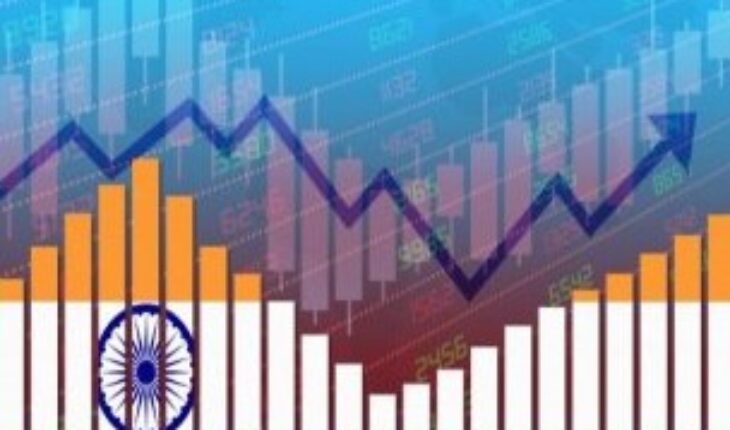The stock markets of the affected countries registered a significant decline on April 7 due to the imposition of a baseline tariff of 10% from April 5 on countries doing business with the USA, including India, by US President Donald Trump. However, the impact of the decline in the Indian stock market was comparatively less, and the Sensex and Nifty registered a drop of only around 4%. In comparison, the maximum decrease of 15.24% was recorded in the Hong Kong stock market, 10.74% in the Taiwan stock market and 8.49% in the Japanese stock market. At the same time, the US stock market registered a decline of 5.75%.
The US has imposed more tariffs on Asian countries than on European countries. This is 104% in China, 49% in Cambodia, 46% in Vietnam, 37% in Bangladesh, 36% in Thailand, 32% in Taiwan and Indonesia, 29% in Pakistan, 26% in India, 24% in Japan & 20% in the European Union. Therefore, the stock markets here have significantly declined in Asian Countries. However, there are many domestic reasons for the decline as well. For example, the Sensex has declined in India for 6 months. Nifty has also been declining continuously for the last few days after 1996, i.e. after 29 years. The tariff imposed by the US has negatively impacted diamond products exported from India, because India exports more than 1/3rd of its diamond products to the US.
Amid these turbulences, the Reserve Bank of India announced the results of the monetary review on April 9. It reduced the GDP growth forecast from 6.7% to 6.5% and the inflation forecast from 4.2% to 4% during the financial year 2026. As the reduction in the GDP estimate is nominal, it can be presumed that the US imposing tariffs on India will have minimal impact on the Indian economy. It is worth noting that the National Statistical Office (NSO) has projected the GDP growth rate to be 6.4 percent in its first advance estimate for the financial year 2024-25, which is lower than the last three financial years. During the previous financial year, the GDP growth rate was 8.2 percent.
Despite the estimate of a decline in GDP, our economy is much better than the global level. According to the Organization for Economic Cooperation and Development (OECD), the global GDP growth rate was 3.2% in 2024. It can be 3.3% in 2025, whereas, according to the IMF, the global economy can grow at a rate of 3.1% in 2024 and 3.2% in 2025. The Indian economy is better than that of the world’s most powerful country, the USA, and it is expected to remain strong in the coming years. The growth rate in the USA is estimated to be 2.7% during the financial year 2024 and 2.0% in the financial year 2025.
The level of inflation is still a matter of concern in many countries worldwide. Still, due to the decrease in the prices of food items in India, the retail inflation rate based on the Consumer Price Index (CPI) came down to 3.61% in February 2025, which was at 4.31% in January. Currently, inflation is at its lowest in the last 6 months. It was at 5.22% in December, while in January 2024, it was at 5.1%.
A total of 30 companies are listed in the Bombay Stock Exchange (BSE) index Sensex, and 50 companies are listed in the NSE or Nifty. In the stock market, Indian, foreign institutional investors, individual foreign investors, etc., invest in listed companies. Both indices are very sensitive. When the shares of a particular company among the listed companies are continuously sold, the investors’ trust in that company decreases, and the price of the shares of that company decreases, resulting in investors suffering losses.
There are many reasons for the fluctuations in the price of shares. For example, poor financial performance or the company getting involved in some controversy, political instability, government policies, weakening of the rupee against the dollar, global uncertainty, trade war, geopolitical crisis, Federal Reserve’s stance, etc. Apart from these, overvaluation of shares and psychological reasons are also the reasons for the stock market crash.
However, the US imposition of tariffs has raised the possibility of recession in most countries except India because tariffs will reduce imports of the affected countries, foreign exchange inflows will reduce, unemployment will increase, etc. Since the economy of many countries is already in a bad condition, the pace of development there may slow down even more, and recession may get a chance to spread.
India exports many products like textiles, pharmaceuticals, IT services, steel, etc., to the US. Therefore, imposing a tariff will increase the cost of these goods in the US market, reducing their demand and causing losses to Indian exporters. Also, this can lead to a decrease in employment in India, an increase in trade deficit, a reduction of foreign exchange reserves, a decrease in company revenue, a decrease in economic activities, a decrease in the pace of development, etc. Due to the fall in the level of exports, the rupee may also weaken, imports may become expensive, and inflation pressure may increase.
However, if such a situation persists for a long time, India can look for alternative markets like the European Union, ASEAN and the Middle East to compensate for the loss. Even during the Corona period, India quickly became self-sufficient regarding masks and vaccines. Also, in retaliation, tariffs can be imposed on agricultural products, medical equipment, etc., imported from the US, which can compensate for the loss to some extent.
The government’s focus in the budget has been on accelerating development. There has been some decline in the GDP growth rate, but there are chances of it picking up due to the repo rate reduction and inflation reduction over the last six months. The Indian economy remains strong, and tariffs cannot weaken it. Therefore, there is less scope for selling in the Indian stock market, and investors can get attractive investment returns. Therefore, investors do not need to panic; they need to avoid unnecessary selling.
Satish Singh, Ahmedabad Senior Columnist, views are personal.






